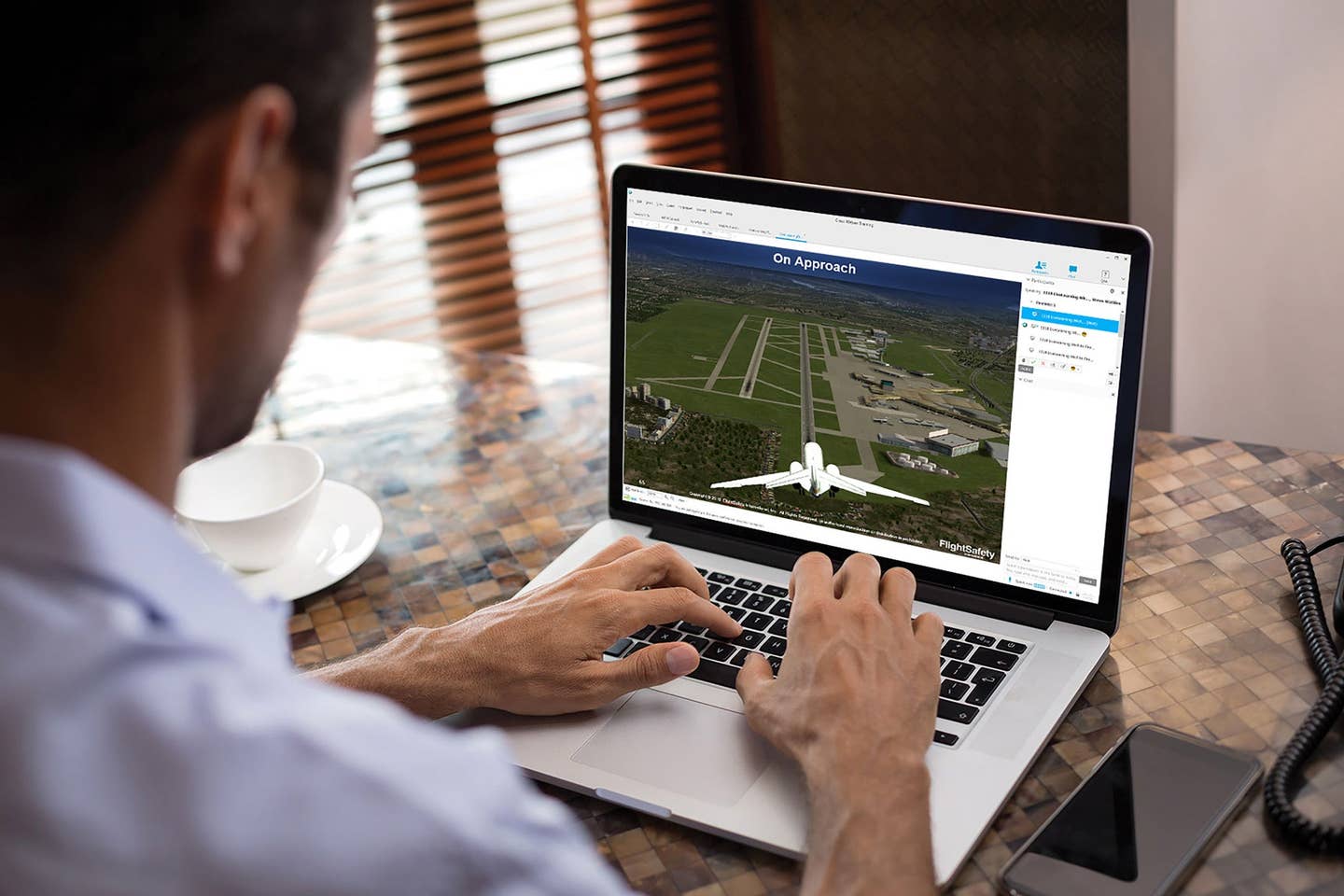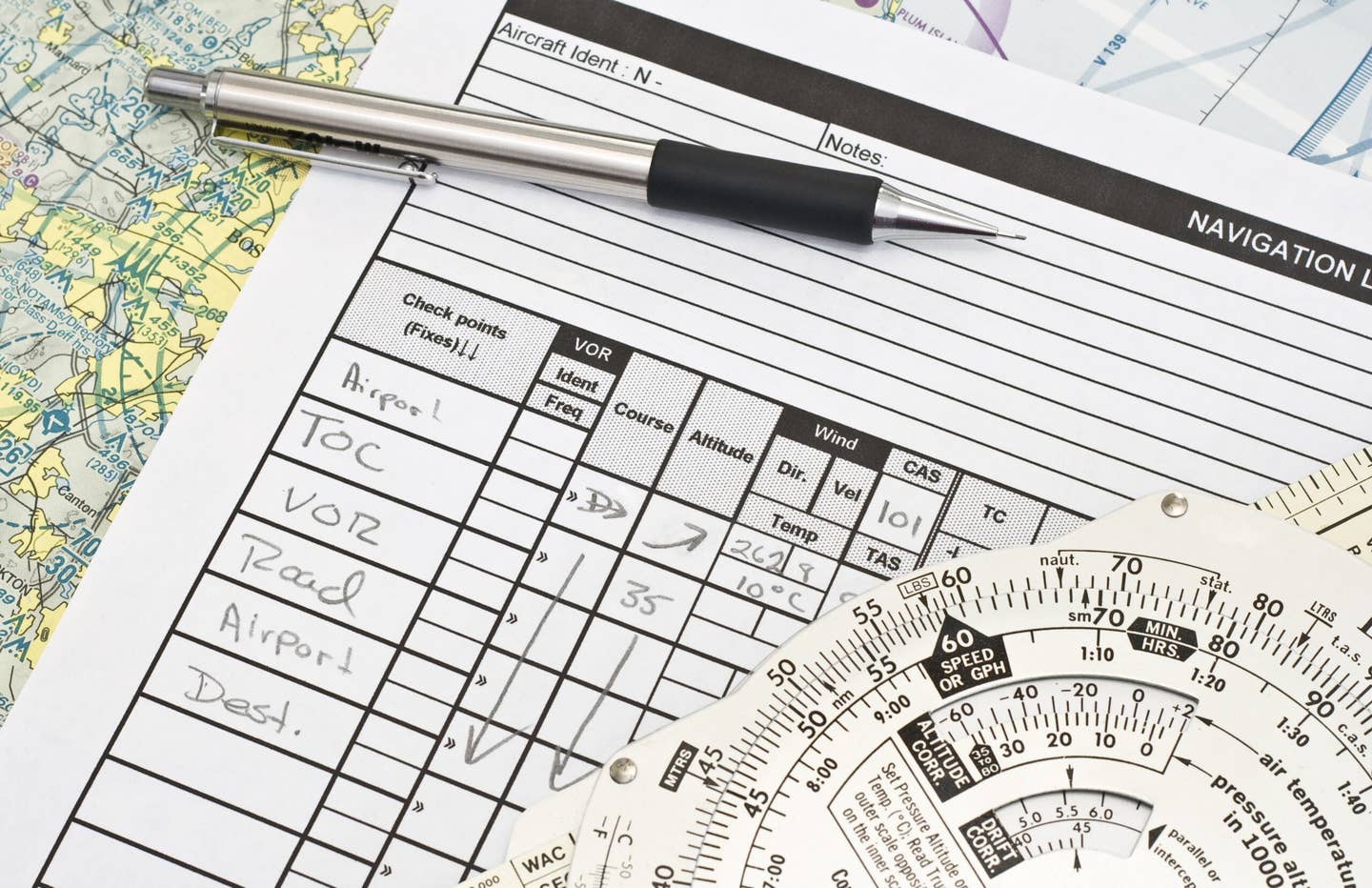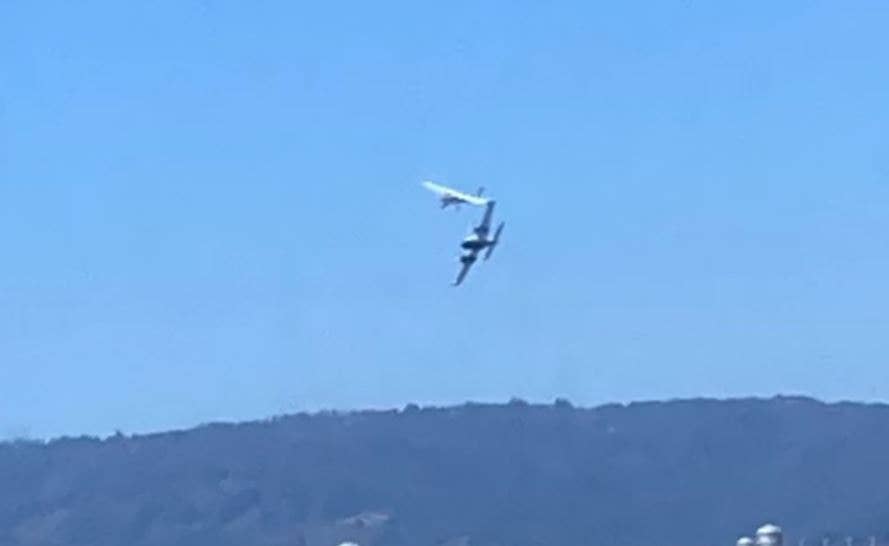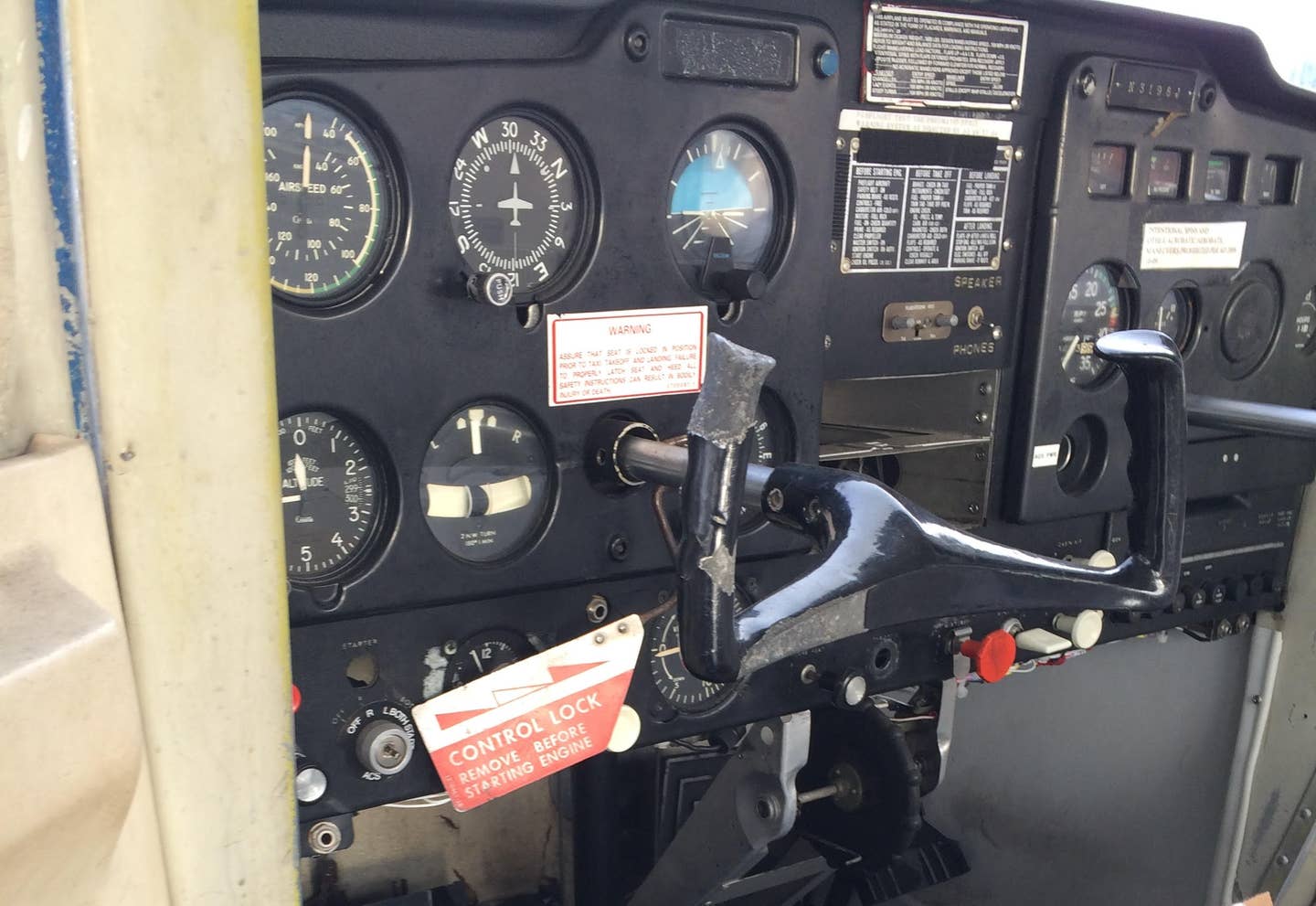To Become a Better Pilot, Master the Top Gun Debrief
New technology helps, but pilots and instructors should take the postflight feedback process seriously.
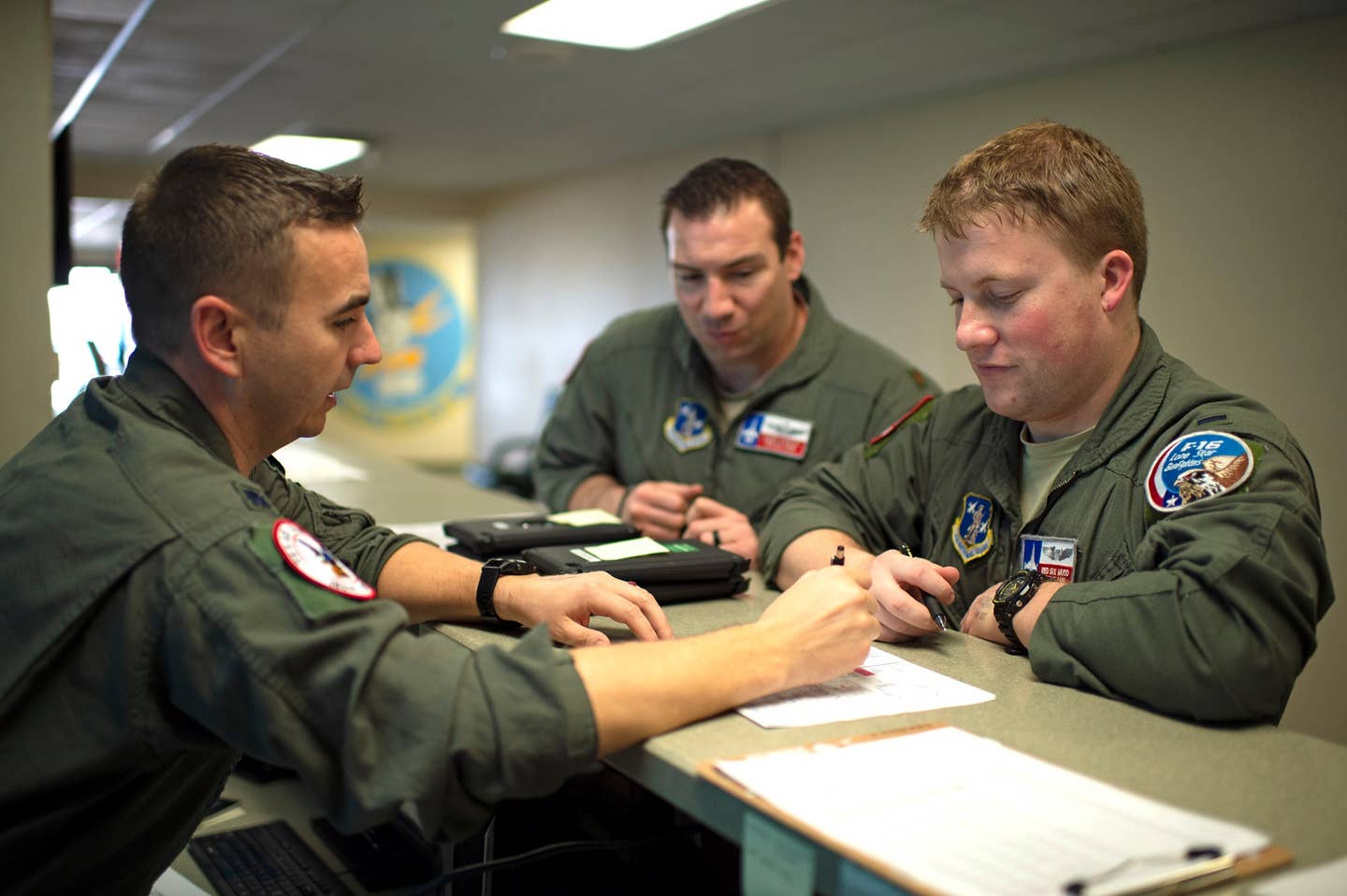
Lt. Col. Geffrey Gebhardt, assigned to the 149th Fighter Wing, Air National Guard, at Joint Base San Antonio-Lackand, briefs student pilots 1st Lt. Patrick Mudd and Maj. Dave Carlo at Luke Air Force Base, Arizona. [Courtesy: Joint Base San Antonio]
In December 2021, American Airlines (NASDAQ: AAL) adopted a new electronic flight bag tool, CEFA AMS, that would allow more than 15,000 pilots to review flight data virtually on their tablets after landing. It’s another example of how technology can augment flying and empower pilots with more objective tools.
"This progressive new debriefing capability will help promote a culture of continuous self-improvement and reinforce American's safety-first mentality into every flight," said Captain Neil Raaz, operations safety director at American Airlines, at the time in a statement.
“Pilots who master self-critique early will hold themselves to high standards throughout their careers. ”
It’s interesting that even at that advanced professional level, it’s imperative for pilots to engage in postflight debriefs outside of the training environment. It should underscore to students and flight instructors that post-activity debriefs are one of the essential tools of learning.
It’s vital to master this skill because a flying career isn't static. Pilots always have to be learning, which means accepting and integrating feedback is paramount in getting to the next level.
So, why do some people approach it so flippantly?
Debrief Tools and Flight Instructing
As a quality assurance mentor in my last flight department, I helped implement a commercial debrief tool that offered a dynamic recreation of training flights using multiple aircraft systems sensor data. The system was data-driven and used artificial intelligence, advanced analysis, video integration, and a flight scoring tool. If you did a steep turn, it would automatically log the flight track and grade you based on the criteria you set. It also worked for instrument procedures, and the flight deck view was most helpful in replaying pitch and power settings.
The goal wasn't to supplant a flight instructor, but rather to augment their feedback.
What both American Airlines and my flight department did are results of the FAA's Flight Operational Quality Assurance, or FOQA, program that encourages using data to enhance training.
Why Effective Feedback is Important
But why do these programs matter? I think that they improve the feedback process overall. Indeed, beforehand—and widely still at some flight schools—the debrief process is arbitrary and rushed between instructors and their students. Students find themselves at the mercy of ill-equipped or unmotivated CFIs who can't objectively explain how to perform better or even why they were able to perform a procedure correctly. Instead, when students struggle, instructors who don't encourage a proper debrief process put their students in an expensive holding pattern, insisting on "just one more flight” to magically sort things out.
Considering that debriefs will be an essential tool for the rest of your career as a pilot, professionally or not, how then can you maximize your postflight process to be a better pilot?
How Top Gun Pilots use Feedback
Prolific author and retired U.S. Air Force pilot James Albright recently explained how the U.S. Navy Strike Fighter Tactics Instructor Program used debrief tactics to rapidly improve Top Gun pilots' skills during the Vietnam War.
Albright explained that during the late 1960s, Navy pilots, as good as they were, found themselves no match for their Vietnamese opponents. Furthermore, they couldn't pinpoint why they were successful in some aerial fights. Survival was a matter of good fortune. This led to a more empirical approach for the Top Gun flight school.
Albright writes that flight crews had to record every aspect of a flight—as much as practical—to be examined later. This postflight analysis became so important that, according to Albright, sometimes that discussion lasted longer than the flight itself.
The debriefs covered a long list of things, from spatial and situational awareness flight discipline to energy management. Both instructors and students offered insights, but the goal eventually was to let the students lead and let them gain confidence in quizzing themselves and reviewing their performances.
"The ability to self-critique is key to continued improvement," Albright says.
Some students today get antsy if a debrief begins to run long, perhaps to avoid an expensive bill, but not having that debrief will cost them in the long run.
In my experience, after a challenging flight, some students would blur their actual performance with personal and subjective self-critique. A helpful instructor won't pile on but redirect them. Pilots who master self-critique early will hold themselves to high standards throughout their careers.
Putting it Into Practice
So, what does an effective debrief process with helpful feedback look like?
I always think that instructors need to gain their students' trust before saying anything. If your student doesn't believe you intend to help them succeed, they won't pay attention or participate. Even though flight activities can be stressful, lashing out will only erode any camaraderie when things go wrong. Instead, give feedback with positive intent. Once you establish that collaborative environment, the process will be more straightforward.
Tactically, the FAA recommends the 4-R process geared towards collaborative critique: replay, reconstruct, reflect, and redirect. In each step, the instructor and student go back and forth on the details of an entire flight, seeking to unpack as much as possible as the Top Gun pilots did.
With flight tracking technologies like I mentioned earlier, pilots today have more help than ever. If you can gain access to those technologies, they’ll improve your process. They’ll allow you to be exact about performances and specific about areas of improvement. A good instructor will embrace the challenge of creating performance notes and profiles to help their students improve. A good student will seek to do it, regardless.
Few people like being told how to do things better, myself included. It's tough hearing about your shortcomings, especially if you think you tried your best. Unfortunately, that mindset will limit you from achieving your maximum capability.
In a weird way, having room for improvement is a good thing. So, great pilots seek feedback from instructors and others. If the process is done right, both pilots should walk away with shared lessons, techniques, and a further appreciation for more.

Subscribe to Our Newsletter
Get the latest FLYING stories delivered directly to your inbox

